Afghan Taliban regime accuses Pakistan of overnight airstrikes
Claim comes a day after three FC personnel martyred in suicide attack in Peshawar, Islamabad yet to respond
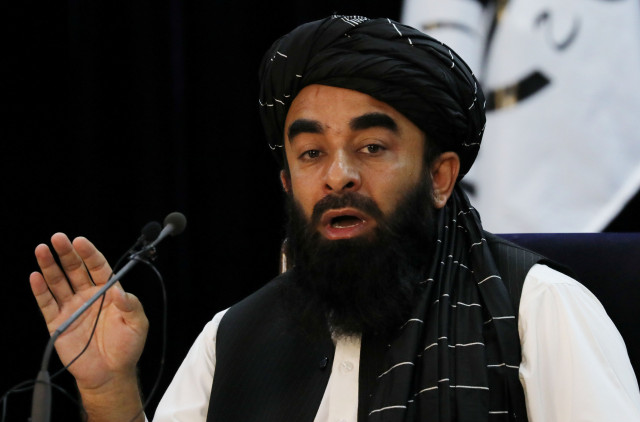
The Afghan Taliban regime accused Pakistan on Tuesday of launching air strikes in Afghan territory overnight.
In a post on X, Afghan Taliban Spokesperson wrote Pakistan had “bombed” Afghanistan's Khost province and carried out air strikes in Kunar and Paktika. Islamabad has not yet officially responded to this statement.
پاکستانی فوج کی جانب سے ایک بار پھر افغانستان کی فضائی حدود کی خلاف ورزی پر ردعمل
— Zabihullah (..ذبـــــیح الله م ) (@Zabehulah_M33) November 25, 2025
گزشتہ شب پاکستانی فوج کی جانب سے افغانستان کے صوبہ پکتیکا، خوست اور کنڑ میں کیے گئے فضائی حملے نہ صرف افغانستان کی خودمختاری اور فضائی حدود کی صریح خلاف ورزی ہیں،
۴/۱
The aforementioned strikes were reportedly carried out on the same day Federal Constabulary (FC) soldiers repelled multiple attackers, including a suicide bomber, who attempted to storm their headquarters in Peshawar. At least three paramilitary personnel were martyred and 11 others were injured in the attack.
Pak-Afghan tensions
Talks between Pakistan and Afghanistan in Istanbul have stalled, with no breakthrough on Islamabad’s demand for a concrete plan to dismantle terrorist networks operating from Afghan soil. Despite mediation by Turkish officials, the Taliban delegation has refused to provide written guarantees.
A security source earlier told The Express Tribune, "The logical and reasoned demands that Pakistan has presented are legitimate, but the Afghan Taliban delegation is not ready to fully accept them".
Read: Pakistan, Afghanistan peace negotiations deadlocked
"The message from Islamabad was clear – no compromise on terrorism. Pakistan has presented specific proposals seeking verifiable measures to dismantle the TTP network and prevent cross-border attacks," said another source privy to the matter.
Pakistan has since decided to keep its border crossings with Afghanistan shut for an indefinite period, signalling a hardened stance until the Afghan Taliban regime took “verifiable and irreversible” action against terrorist outfits, particularly TTP.
Officials told The Express Tribune that the government had conveyed to Kabul that the crossings would not reopen for trade and commercial activity unless concrete steps were taken to eliminate anti-Pakistan elements operating from Afghan soil.
The border closure, which stretched beyond a month, left thousands of trucks and containers stranded on both sides, crippling bilateral trade and the regional transit route.
The crossing points remained open only for one-way humanitarian movement, primarily to facilitate the return of Afghan refugees and stranded individuals.
Read more: Pakistan, Afghan Taliban reach interim understanding in Istanbul talks
Tensions along the Pak-Afghan border escalated on October 12, when clashes erupted after the Afghan Taliban regime opened unprovoked fire at multiple locations in Khyber-Pakhtunkhwa (K-P) and Balochistan, prompting a swift and forceful response from the Pakistan Army, which destroyed several Afghan posts and killed dozens of Afghan soldiers and militants.
'Serious threat'
Earlier this month, Denmark warned the United Nations Security Council (UNSC) of the “serious threat” posed by proscribed Tehreek-i-Taliban Pakistan (TTP) in Central and South Asia, saying the group receives “logistical and substantial support from the de facto authorities”.
Speaking as chair of the Security Council ISIL (Daesh) and Al-Qaeda Sanctions Committee, Denmark’s Deputy Permanent Representative Sandra Jensen Landi highlighted the presence of approximately 6,000 TTP fighters in Afghanistan, responsible for high-profile attacks on Pakistan from Afghan soil.
Also read: 'Security first, trade later': Afghan border to stay shut indefinitely
Landi also noted evolving threats from ISIL, Al-Qaeda, and their affiliates. ISIL-Khorasan (ISIL-K) in Central and South Asia remains a serious concern, with at least 2,000 fighters targeting Afghan authorities, Shia communities, and foreign nationals. Meanwhile, Daesh affiliates in Africa, including ISWAP, have expanded activities and propaganda.
Pakistan’s Deputy Permanent Representative Usman Jadoon echoed concerns over terrorism emanating from Afghanistan. He stressed Pakistan’s sacrifices in combating terrorism, noting over 80,000 casualties and economic losses.
Jadoon highlighted that groups including ISIL-K, TTP and its affiliates, BLA, and Majeed Brigade continue to operate under Afghan patronage.
He called for the 1267 sanctions regime to reflect ground realities, urging objective, transparent, and impartial processes for listing and delisting individuals and entities.

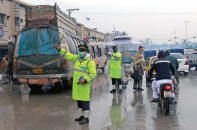
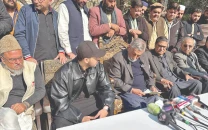

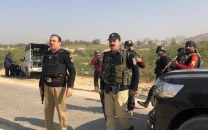
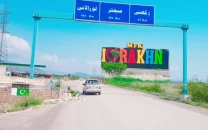













COMMENTS (2)
Comments are moderated and generally will be posted if they are on-topic and not abusive.
For more information, please see our Comments FAQ